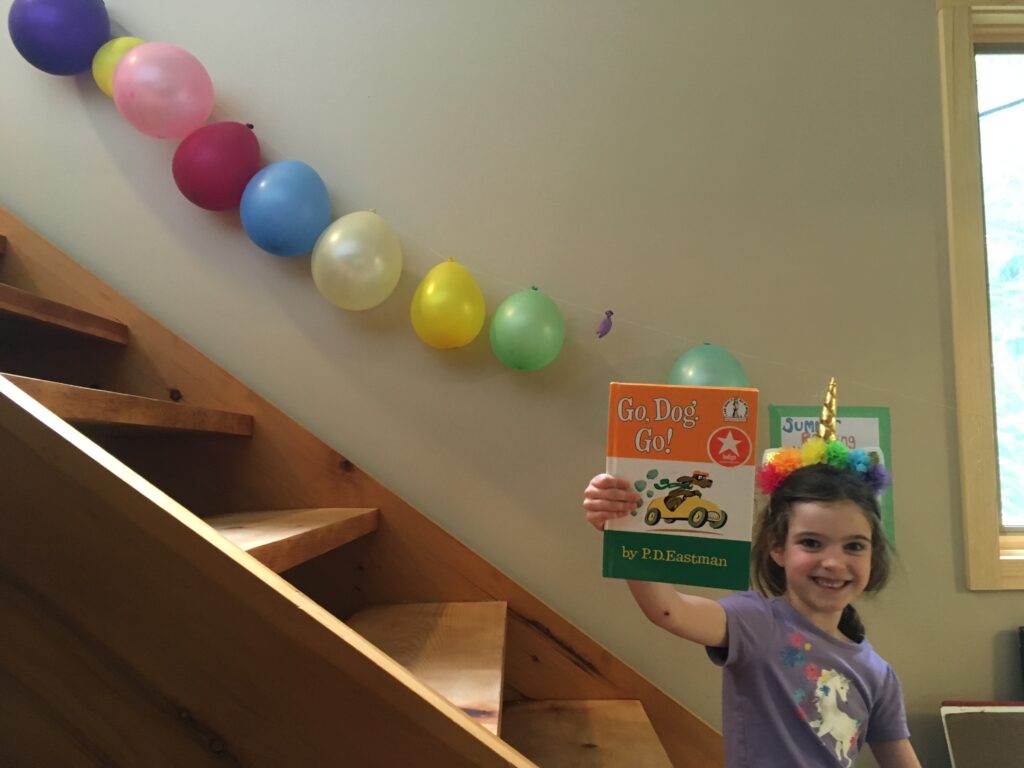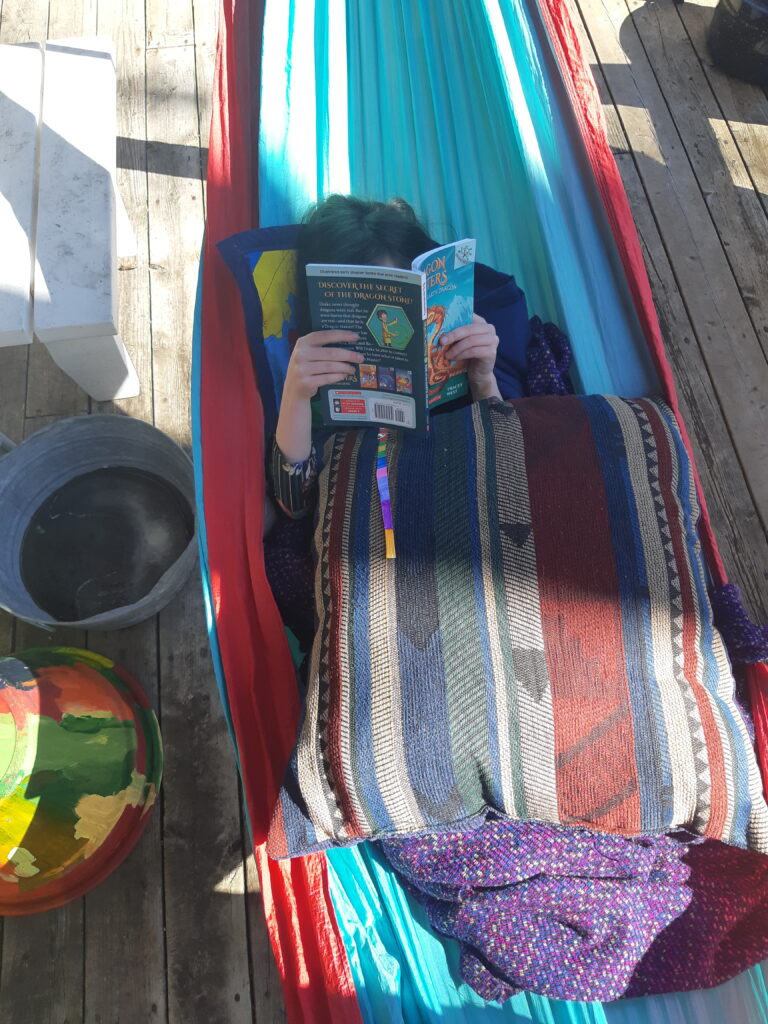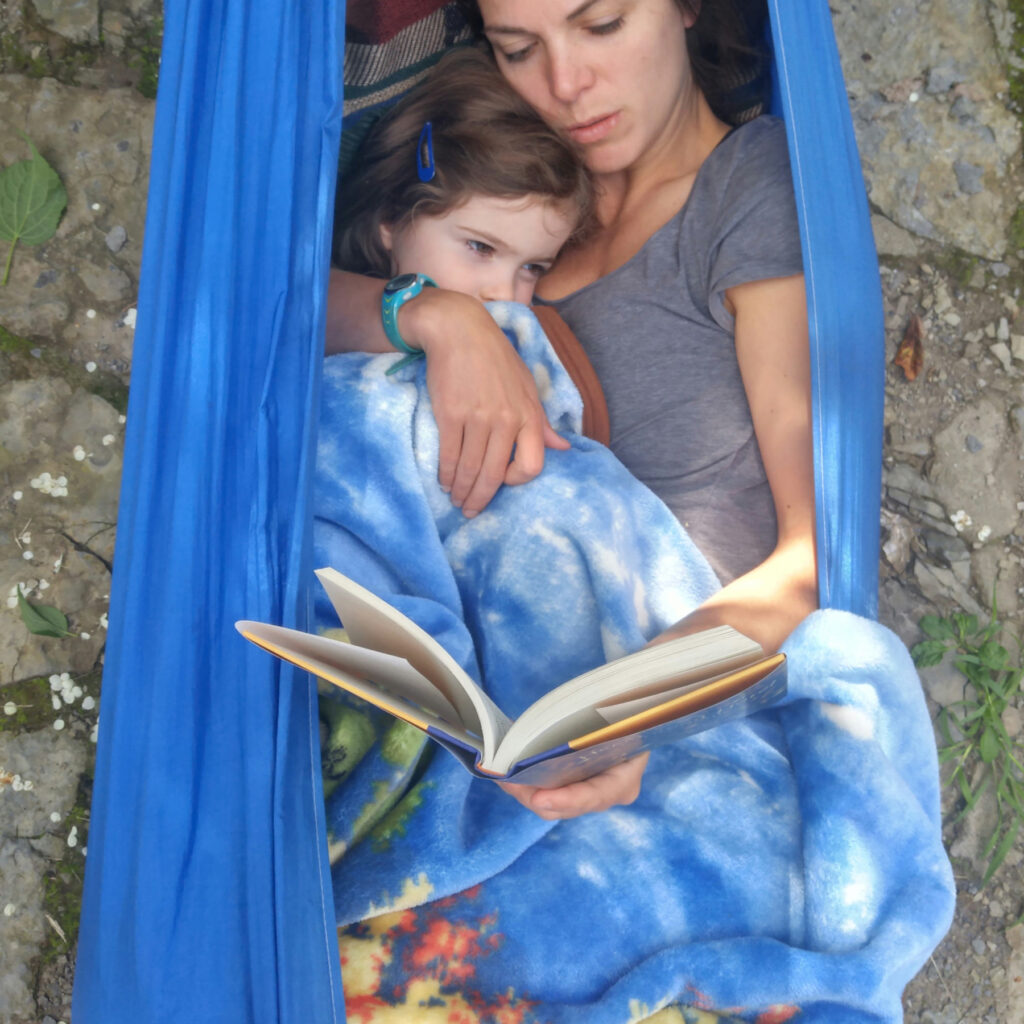It is an amazing thing to watch a child grow, and to see new worlds open up to them…being able to walk…being able to talk…being able to read!
At the end of SK/Maternelle we kicked off the summer with a reading challenge, and she was reading simple books like Go, Dog, Go!

In Grade 1/Première Année she was reading the little readers from school, picture books, and then short novels.


And now, at the end of Grade 2/Deuxième Année she is reading novels in both English and French. I just make sure we have lots of interesting books – thank you Ottawa Public Library (we love you)!!
One of her favourite places to read is in the hammock – even in winter with her snowsuit on! I also enjoy and have many fond memories of lying in a hammock lost in a book.

As an outdoor educator and mama to a little girl who likes to be outside, I’d love to see teachers take their students outside more often for all subjects, and for schools to invest more in outdoor learning spaces. So, I was so thrilled when this came across my twitter feed (Imagine if every school had a forested area, outdoor classroom areas and a hammock alley for some quiet and/or reading time!):
Reflecting back on my daughter’s reading and all the many books we’ve shared actually makes me tear up. Motherhood is full of emotional paradoxes. Another mother, Jinti Fell (@jinti_fell), put it so aptly, “I wonder how this experience can feel like an ongoing mourning of who she was whilst simultaneously the most miraculous journey of watching her blossom”. Here is a short video of her in her pre-reading years and some sweet reading memories.








It must feel like a whole new world opening up for them. When I asked her what it felt like to be able to read herself what she wanted, she said “I was pretty excited!” I am pretty excited for her too.
Recently, I bought her a used book and I found this treasure written inside:

So true. Happy reading, Kate
PS – If you or a child in your life have difficulty reading know that you are not alone. From the Dyslexia Canada website (accessed June 2021): “According to the International Dyslexia Association, 15-20% of the population has a language-based learning disability. Dyslexia is the most common cause of reading, writing and spelling difficulties. Dyslexia affects males and females nearly equally as well as people from different ethnic and socio-economic backgrounds nearly equally.” Search and reach out to an organization or specialist for help.
